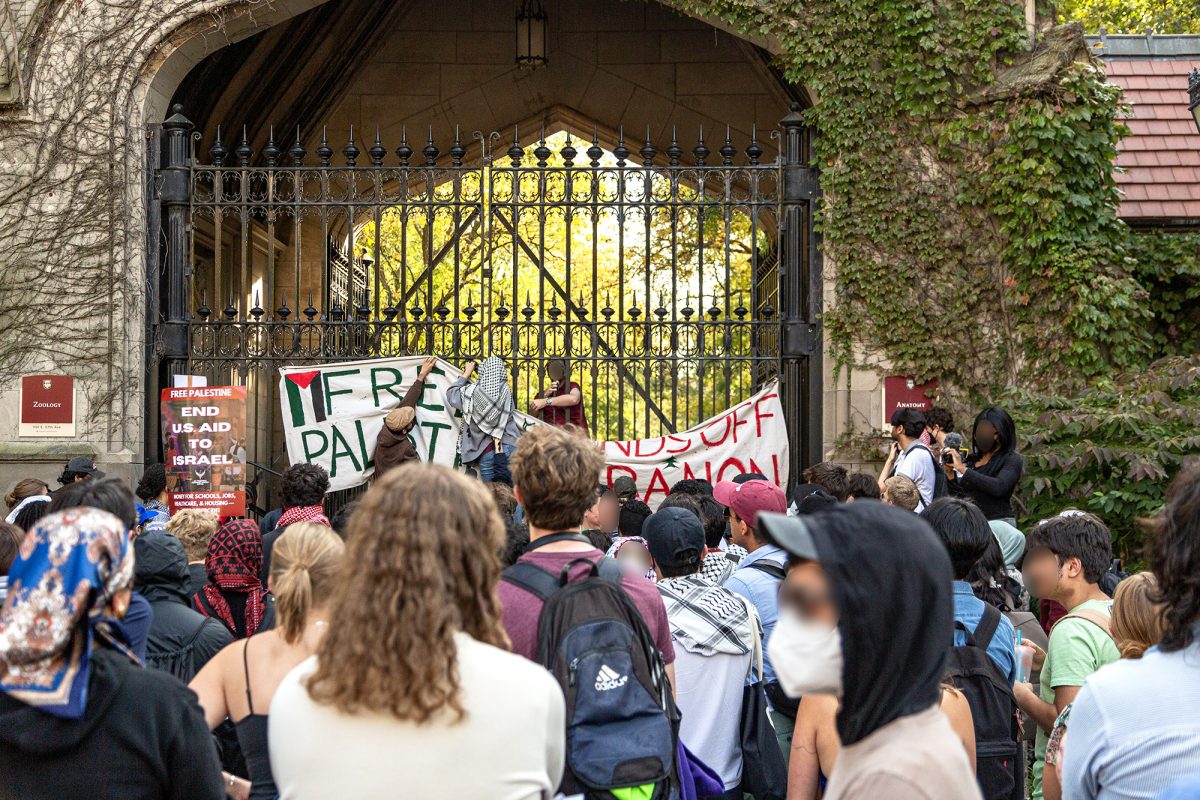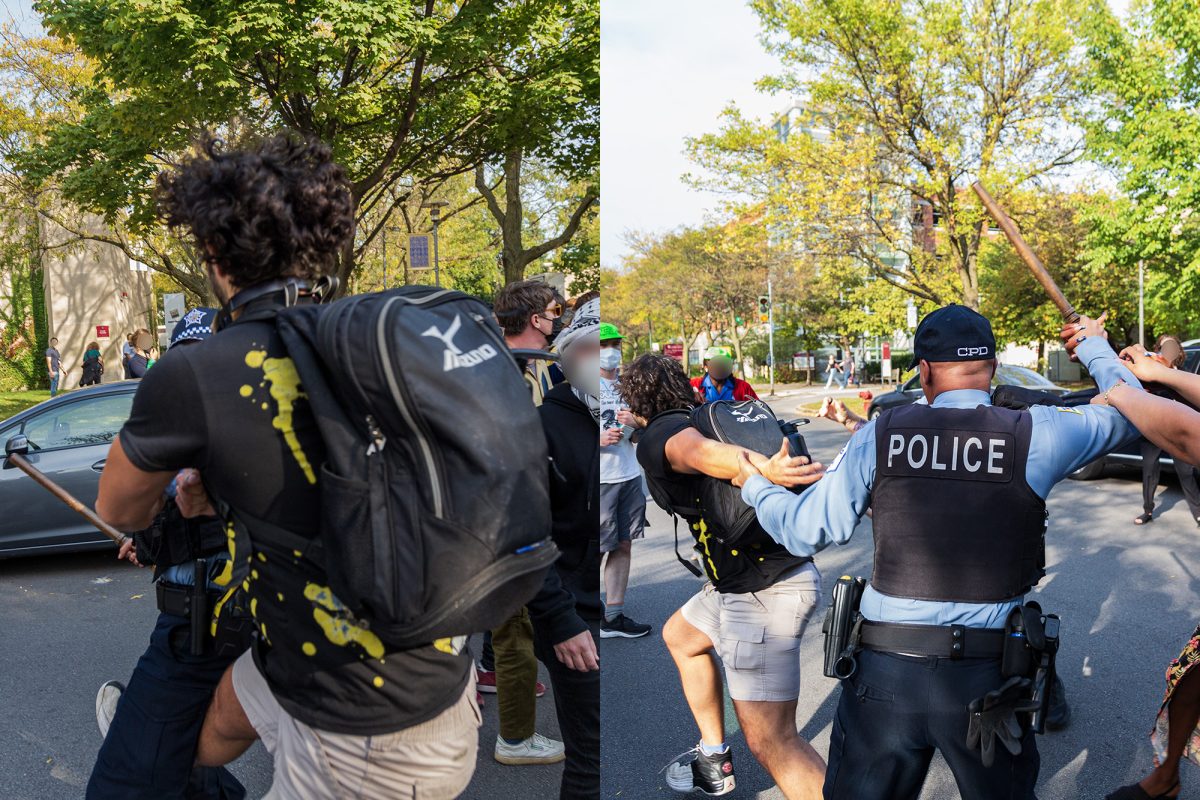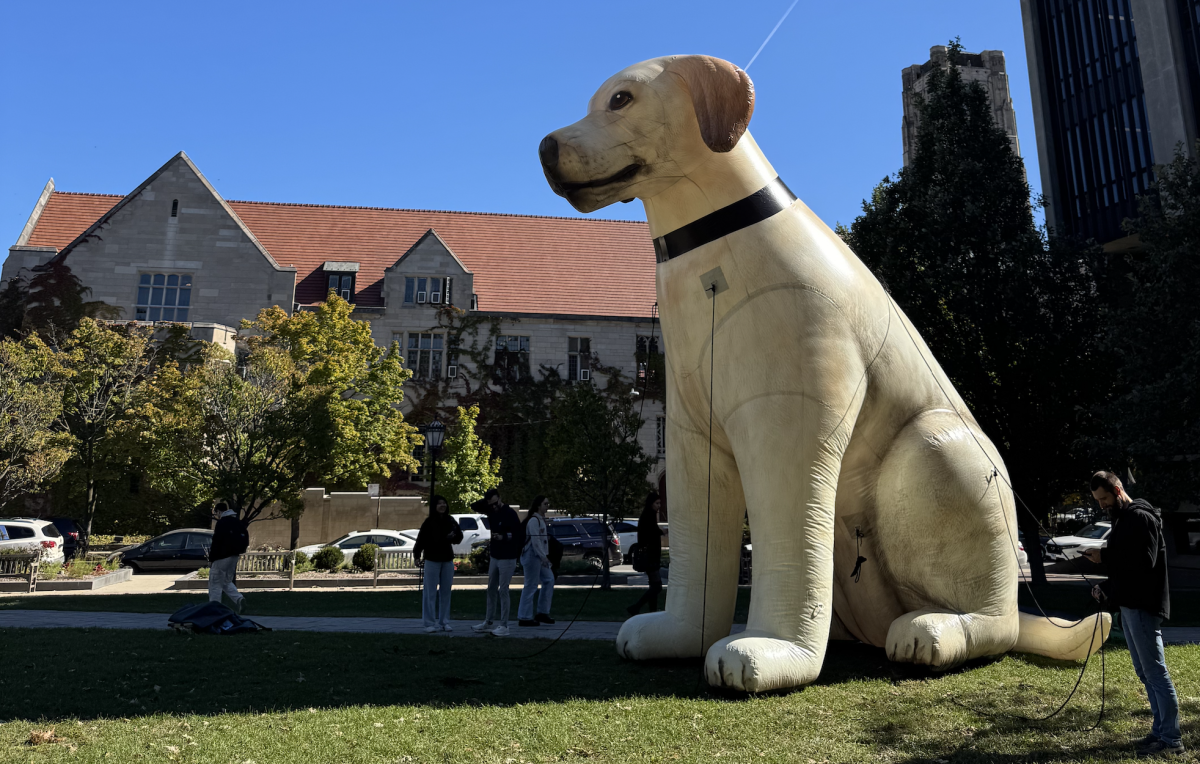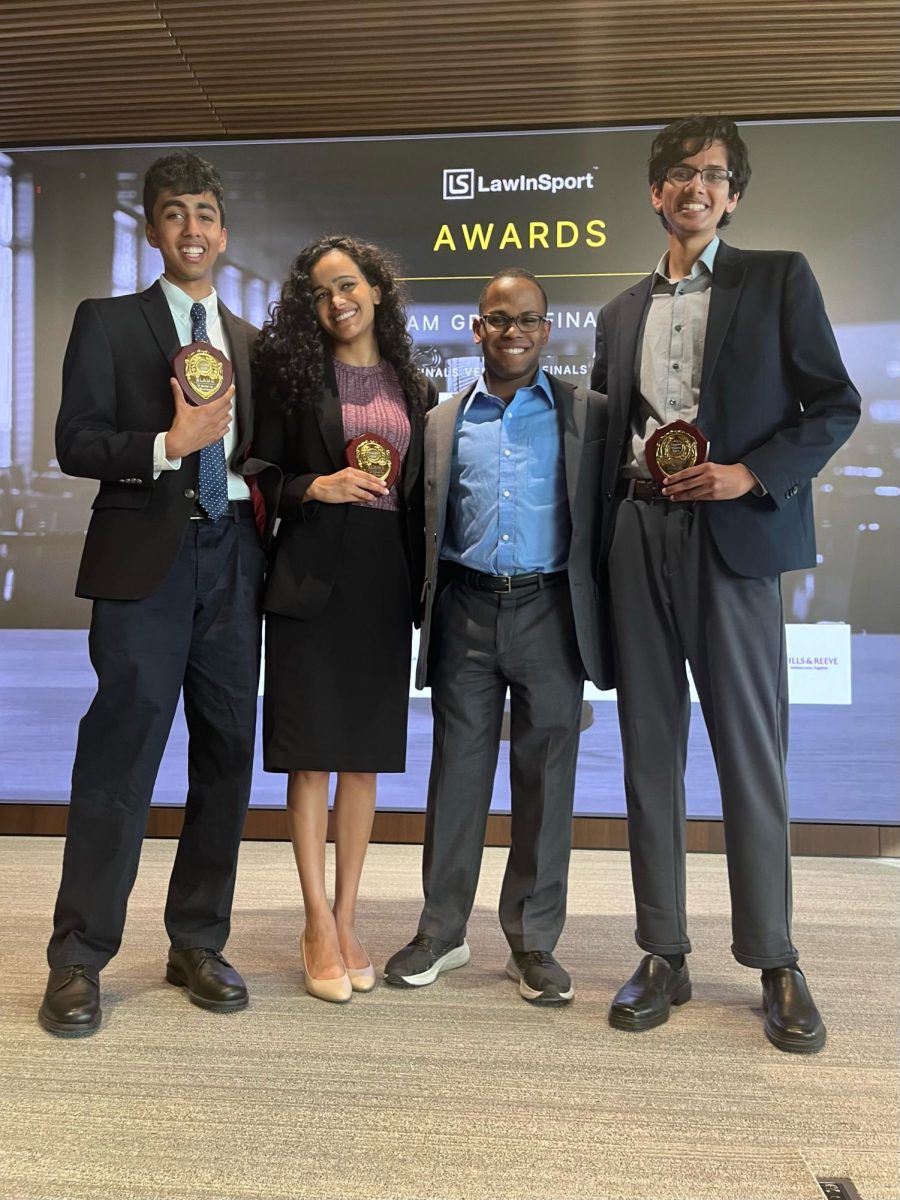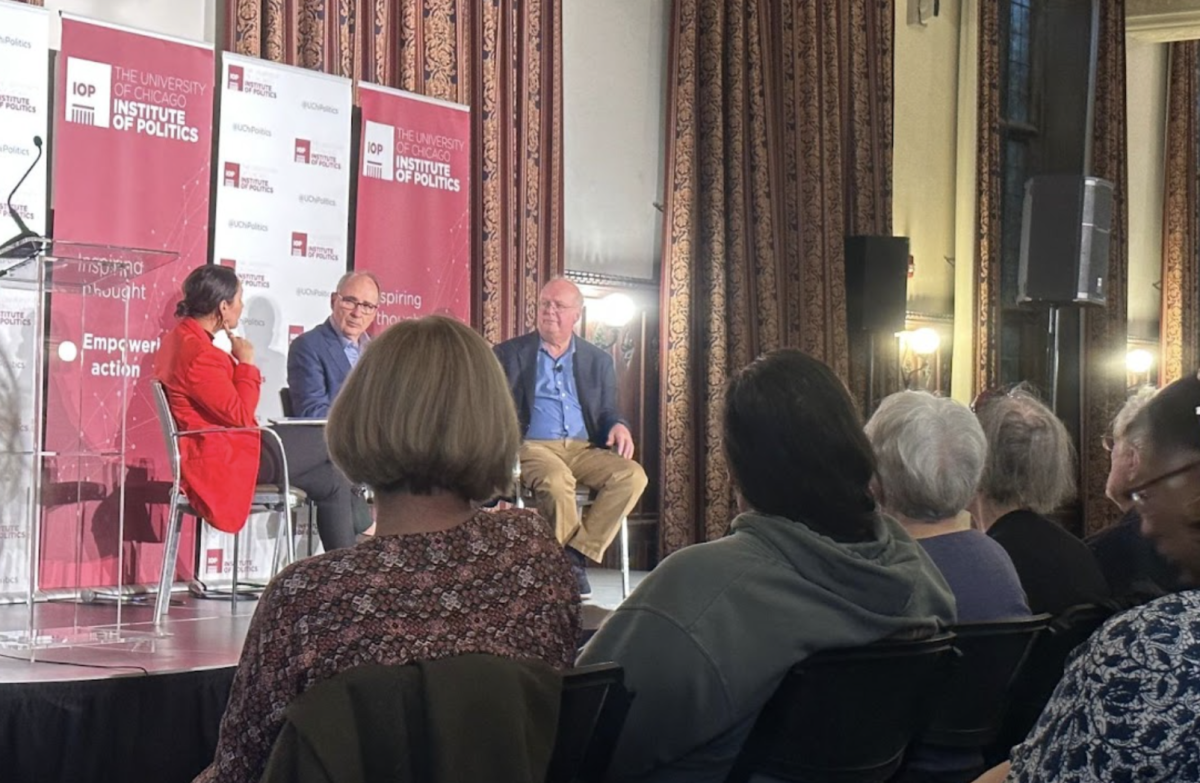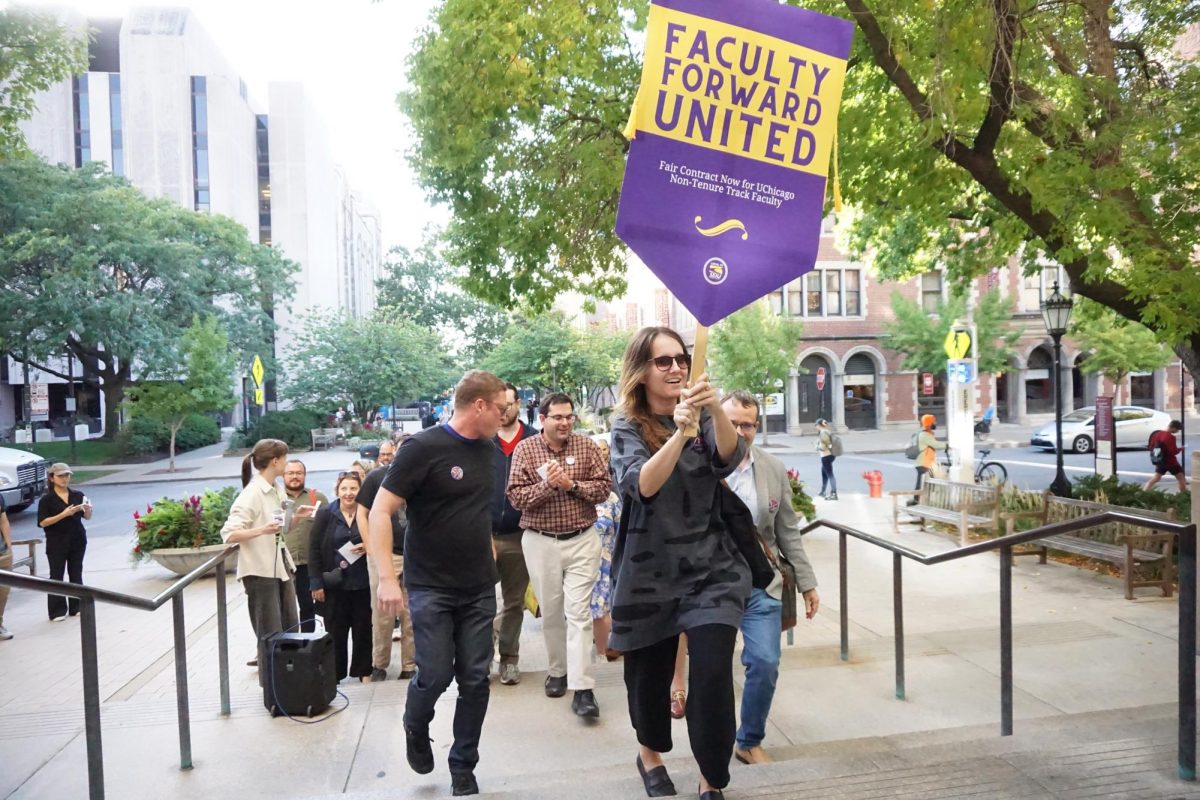Mark Hansen reminds students that there’s plenty of pizza and soda, then settles into his chair to continue watching the election returns. Hansen—distinguished enough that he could perhaps be giving color commentary on the election results—is spending Tuesday night in the A-level of the Reg with his Electoral Politics in America class watching network television feeds streamed through the internet, fielding political questions, and sharing his passion for politics.
Hansen, the dean of the Social Sciences Division and the Charles L. Hutchinson Distinguished Service Professor in the department of political science and the College, is the author of two books on the political process. He is also the Chair of the National Election Studies Board of Overseers. The recipient of multiple writing awards, he spoke with the Maroon via e-mail on Thursday about the 2004 election.
What, if anything, surprised you about the election?
I wasn’t surprised by much of anything in the outcome. I expected the presidential election to be close, and it was. The Republicans did a little better in the Senate than I anticipated, but not much. They did about what I—and others—expected in the House, entirely due to the remap in Texas.
The main surprises were turnout and election administration. Turnout was up by 3.1 percent over 2000; I expected it to be up by a significant amount, but not quite up as much as it was. I also expected complaints about election administration to be up, not because the situation is worse objectively than it was in 2000, but because so many people were watching closely. There were still problems, but nothing of the magnitude in 2000. Of course, the Bush margin in Ohio was comfortable enough that Ohio did not receive the kind of scrutiny Florida endured in 2000.
Was the election fair?
It depends upon whether you like the outcome. There were problems, and there will continue to be problems, but without secretaries of state, state legislatures, state courts, and the Supreme Court having to step in, it certainly feels more fair than in 2000.
Did Bush’s margin of victory catch many by surprise?
Bush’s victory caught a lot of Kerry supporters by surprise. A lot of Democratic partisans were feeling very confident heading into Tuesday. And it wasn’t unreasonable for them to have felt confident, even though the election went the other way. As a matter of fact, the Bush margin was not very large. Even if he takes Iowa and New Mexico, which seems likely, Bush’s Electoral College margin, in percentage terms, is the fourth smallest in U.S. election history, since truly popular elections began in 1828. Among incumbent presidents who successfully sought reelection, Bush’s popular vote percentage margin is even smaller than Woodrow Wilson’s in 1916, so the smallest since Grover Cleveland’s in 1888 (when Cleveland won the popular vote but lost the presidency in the Electoral College).
What was your impression of the level of student involvement in the election, in terms of the number of activists, voters, or simply well informed students?
The level of student interest and involvement this year was the highest I’ve ever seen it. When I was in school and then teaching in the 80s, there was a high level of activism among students on the right, but this year’s involvement was even greater. I can’t remember ever having seen so many students volunteering in get out the vote efforts, and traveling to Iowa, Wisconsin, and Michigan to do it.
What message would you tell Kerry activists on campus spent so much time campaigning for a candidate who eventually lost?
The world did not end. The Democratic Party is no longer the majority party in the country, but neither is the Republican Party. The electorate is about evenly divided, and the new majority party will be the one that captures the middle.
What message would you tell Bush supporters on campus, who may feel like they’re a small minority?
The world is not made fundamentally anew. George W. Bush may have received the most votes of any presidential candidate in American history—population growth is a wondrous thing—but John Kerry received the second largest number of votes of any presidential candidate in American history. The voters may have given the Republican Party the ability to govern, but now it has the responsibility to govern.



